According to Nikkei Asia , the EU Deforestation Reduction Regulation (EUDR) is designed to ban the import of seven commodities – cattle, cocoa, coffee, palm oil, rubber, soybeans and wood products – if they originate from land formed by deforestation after 2020. Importers will have to provide “convincing and verifiable information” about their supply chains, including geolocation data on product origin. Compliance with the EUDR will become mandatory by December 2024 for large companies and by June 2025 for smaller companies.
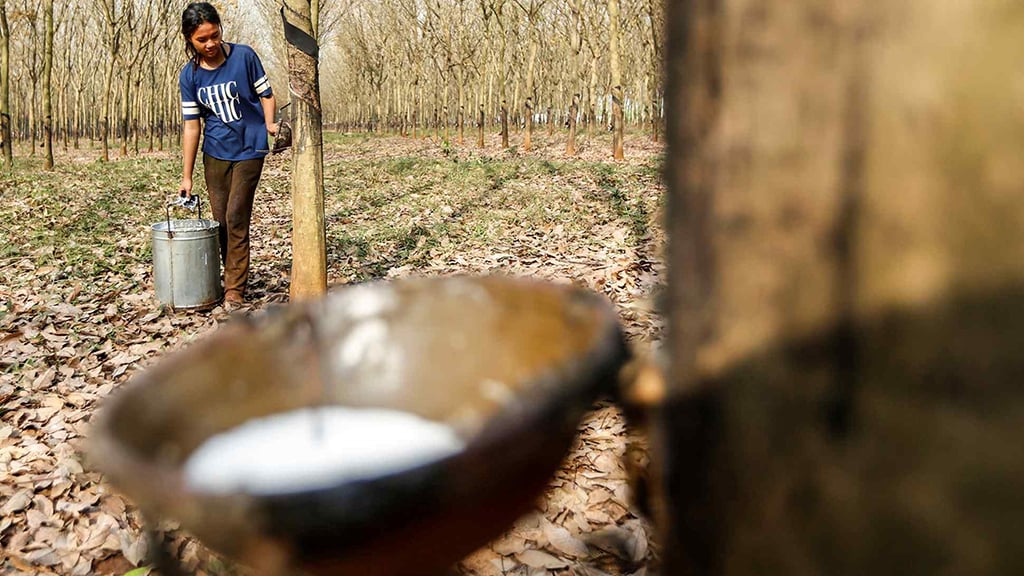
A rubber plantation in Cambodia
Regional response
Some experts say the concern for Southeast Asia is that the EUDR will heavily hurt small-scale farmers without adequately taking into account rubber’s role in deforestation. “The risk is that smallholders will essentially be squeezed out of the market because there are too many requirements and too much effort to monitor and trace the rubber they produce,” Jean-Christophe Diepart, a Cambodia-based geographer, told Nikkei Asia .
Similar concerns are growing in Malaysia, which has joined Indonesia in negotiating the EUDR with the EU, as both worry about the impact on their palm oil industries. But Malaysia’s $2 billion rubber export industry is also at risk. According to the Malaysian Rubber Board, the country exports about 17% of its rubber to the EU, its largest market after the US. About 93% of the country’s rubber plantations are controlled by smallholder farmers.
In March, rubber farmers in Malaysia joined oil palm growers in filing a petition with the EU to protest the “unilateral and unrealistic” requirements in the EUDR, arguing that the regulation would exclude smallholders from the European market and exacerbate rural poverty.
Meanwhile, Thailand, the world's largest rubber producer and exporter, is looking to comply with the EUDR. Regulators in Thailand have set up a national platform to help the country's more than 5 million farmers meet traceability requirements.
Mission impossible?
According to research by Forest Trends (headquartered in the US), compliance with the EUDR is a major challenge for Southeast Asian countries, including Vietnam. According to this organization, when entering Vietnam, rubber from Cambodia and Laos is mixed with local rubber, making traceability "almost impossible".
Diepart made a similar point, saying that in Cambodia, even basic information such as how much rubber is planted is inaccurate, making tracing the entire supply chain nearly impossible.
Some argue that the environmental damage caused by the rubber boom is too late, as it ended with a severe price crash a decade ago. In Cambodia, for example, rubber was thought to be the main driver of deforestation until around 2012 or 2013, whereas now the main driver is the expansion of cashew plantations, according to Diepart.
Another issue for regional producers, large and small, is who will pay the added costs of EUDR compliance. Thai Rubber Group President Vorathep Wongsasuthikul said building a system that allows customers to trace the origin of their products would add 10% to production costs.
New research on deforestation for rubber plantations
The amount of forest lost to rubber production in Southeast Asia could be two to three times higher than previously estimated, according to research published in the journal Nature in mid-October. Using high-resolution satellite imagery, the researchers concluded that more than 4 million hectares of forest have been cleared for rubber plantations since 1993, with two-thirds of that in Indonesia, Thailand, and Malaysia. Looking at the wider region, which includes China’s main rubber-producing provinces of Yunnan and Hainan, the area planted to rubber has increased from 10 million hectares in 2020 to 14 million hectares in 2023.
Source link



![[Photo] Panorama of the cable-stayed bridge, the final bottleneck of the Ben Luc-Long Thanh expressway](https://vphoto.vietnam.vn/thumb/1200x675/vietnam/resource/IMAGE/2025/9/30/391fdf21025541d6b2f092e49a17243f)
![[Photo] Solemn opening of the 12th Military Party Congress for the 2025-2030 term](https://vphoto.vietnam.vn/thumb/1200x675/vietnam/resource/IMAGE/2025/9/30/2cd383b3130d41a1a4b5ace0d5eb989d)
![[Photo] The 1st Congress of Phu Tho Provincial Party Committee, term 2025-2030](https://vphoto.vietnam.vn/thumb/1200x675/vietnam/resource/IMAGE/2025/9/30/1507da06216649bba8a1ce6251816820)
![[Photo] General Secretary To Lam, Secretary of the Central Military Commission attends the 12th Party Congress of the Army](https://vphoto.vietnam.vn/thumb/1200x675/vietnam/resource/IMAGE/2025/9/30/9b63aaa37ddb472ead84e3870a8ae825)
![[Photo] President Luong Cuong receives President of the Cuban National Assembly Esteban Lazo Hernandez](https://vphoto.vietnam.vn/thumb/1200x675/vietnam/resource/IMAGE/2025/9/30/4d38932911c24f6ea1936252bd5427fa)
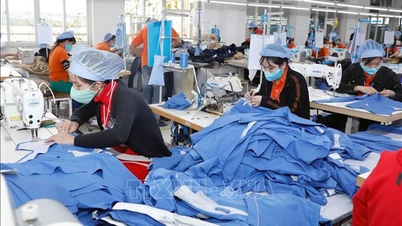

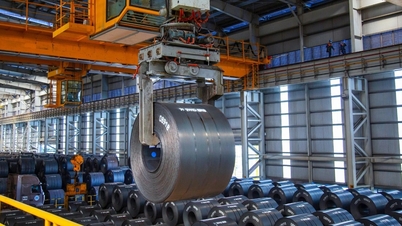




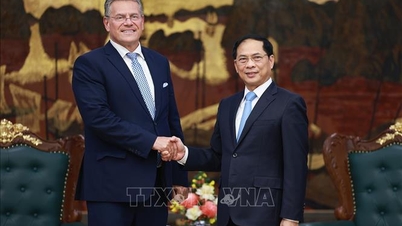














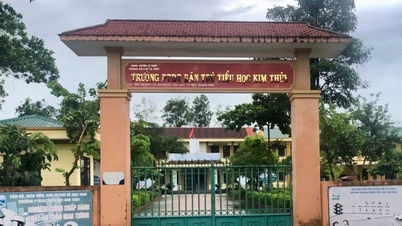
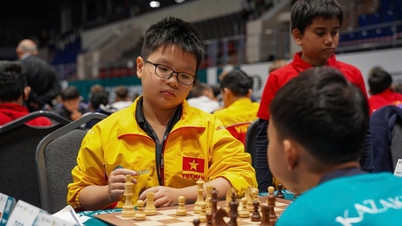
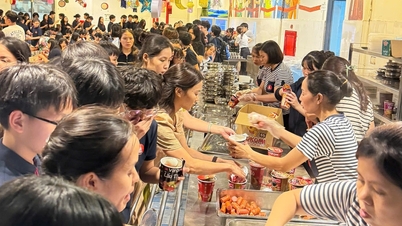


































































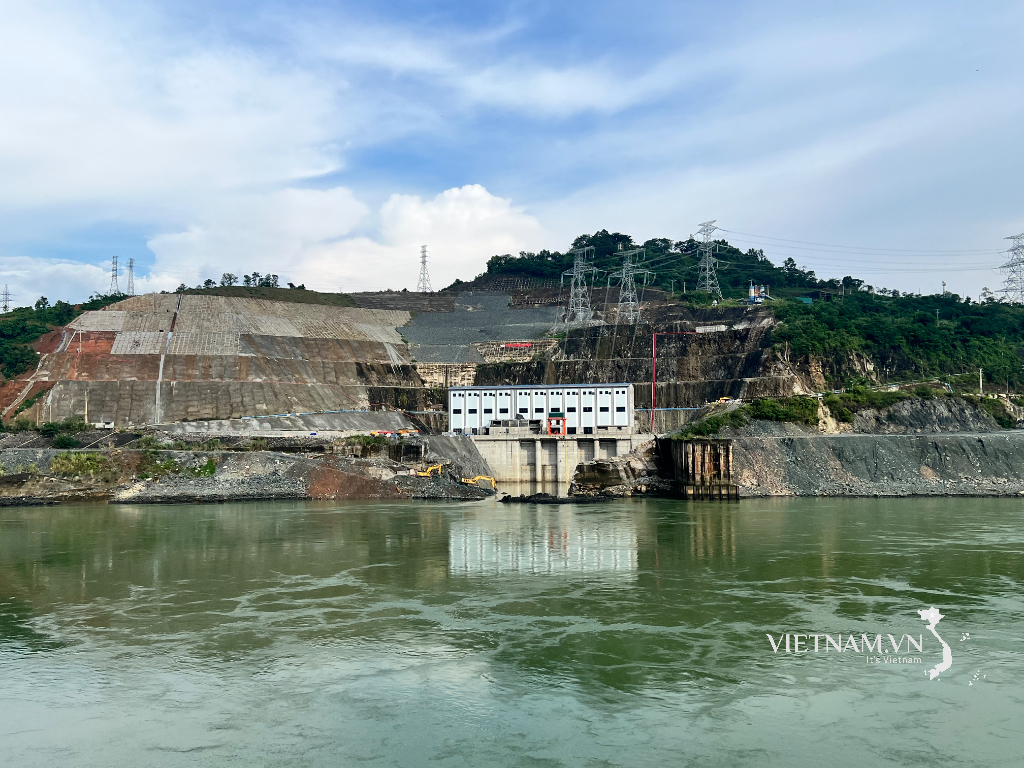



Comment (0)